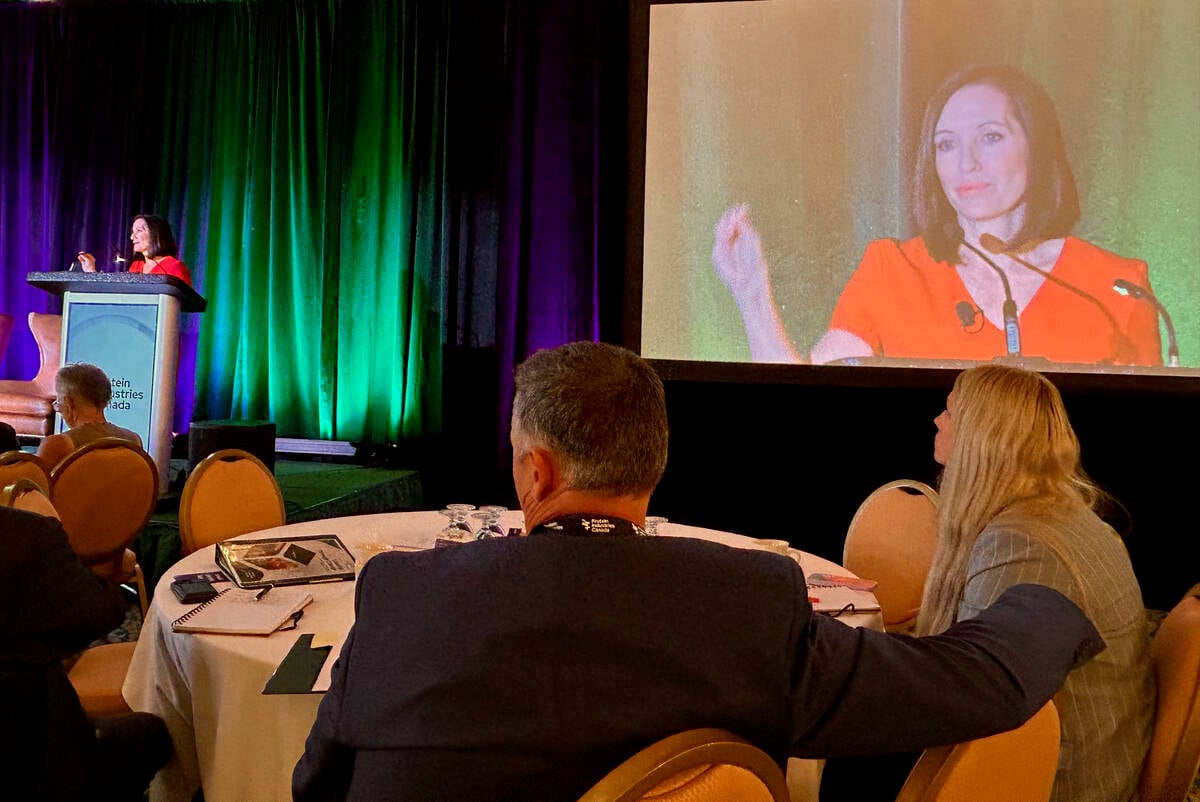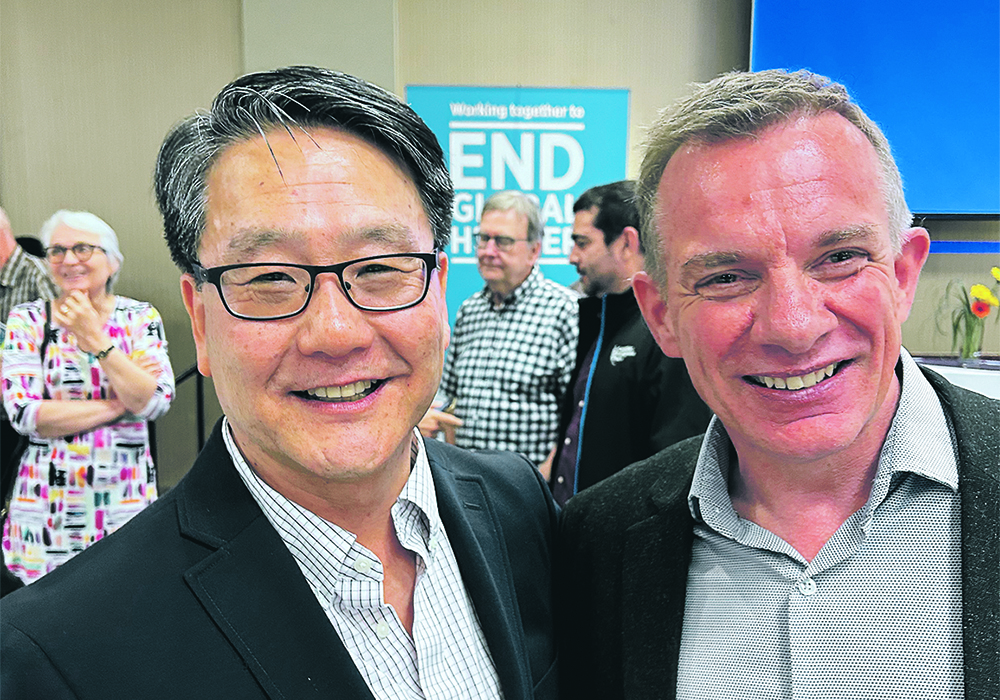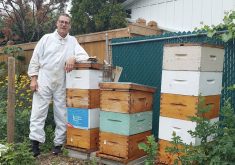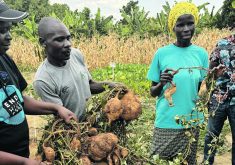Mennonites and western Canadian farmers aren’t good at bragging about themselves. Both groups are immersed in a culture of humility.
That’s perhaps why it took two outsiders to sing the praises of those humble people who founded the Canadian Foodgrains Bank 40 years ago.
Related story: Foodgrains bank celebrates 40 years of giving
“I’ve been blessed by the teachings of good Mennonites who started this,” said Ken Kim, a self-described “Korean guy from Toronto,” and the chair of the CFGB board.
Read Also

Canada told trade crisis solutions in its hands
Canadians and Canadian exporters need to accept that the old rules of trade are over, and open access to the U.S. market may also be over, says the chief financial correspondent for CTV News.
“They invited me to the table.”
Another outsider effusive with praise for the CFGB was the organization’s executive director, Andy Harrington.
“The Canadian Foodgrains Bank has been a legendary organization in Canada for some time, started by those farmers 40 years ago, who were incredibly generous and spread their generosity ever since,” said Harrington, who was born and raised in the United Kingdom.
“It’s this wide table, where we can all sit together and where we don’t have theological arguments. We simply say: God desires no person to go hungry.”
The ability to bring together Christian denominations that have often been divided by fundamental differences is a miracle of the CFGB, according to Kim.
“I have been caught up with denominational politics where it split churches, split families,” said Kim.
“At Foodgrains Bank, we’ve added to our table.”
Early on, the CFGB brought together major churches like those of Mennonites, Lutherans and the United Church of Canada. It also brought in the Anglican and Roman Catholic churches, despite their histories of running their own international aid programs.
“It doesn’t matter what background you come from. If you believe in the central message of God’s love — when Christ said ‘feed my people,’ he meant ‘feed my people,’ both (with) food and with the Word — that (Christians should manifest their faith) through action, and Foodgrains Bank is all about that.”
Harrington, who had a long career in international development before the CFGB, said he has seen the organization’s logo on bags of food aid in several places in Africa, as well as in Asia.
While the CFGB has decades of experience feeding hungry people in crisis, the pandemic brought a sudden shock to all parts of the world. The organization scrambled to get food and support to people in the worst-hit areas, despite borders shutting, trade being suspended and COVID restrictions making much of its previous work impossible.
“From Afghanistan to North Korea to Zimbabwe through the worst of the crisis, Foodgrains Bank has been there even when our government didn’t want to be there,” said Kim.
From small beginnings, the CFGB has grown to become a globally respected agency that focuses and channels the thoughts, prayers, money and efforts of thousands of Canadians.
Although the organization is much bigger today than the one that came to life in the 1980s, the core commitment is unchanged.
“Folks, Mennonites, salt of the earth people who helped start this, who said this is too good, it’s not just for us, it’s for all of God’s people,” said Kim.
“Western producers, God bless you for what you’ve done to make this happen, and your continuing generosity.”


















